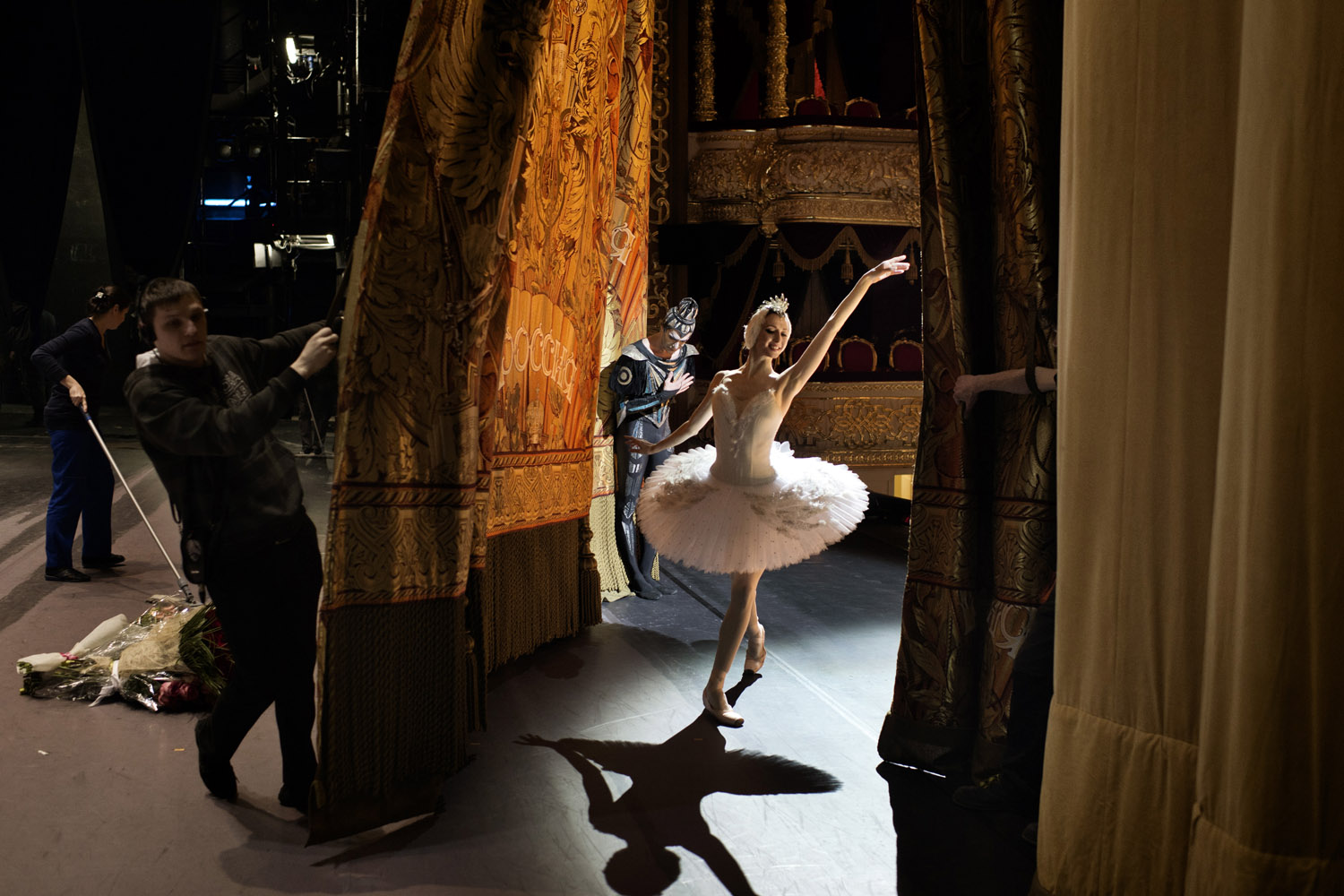
A little after 2 a.m. on February 1, Yuri Kozyrev stood on the freezing tarmac of Bagram Airfield, the main logistics hub for NATO forces in eastern Afghanistan. While a frigid rain soaked the concrete, Kozyrev calmly shot photographs of an armored vehicle driving slowly onto a C-5 cargo airplane. The evening was the culmination of a two-week assignment to document the American “retrograde,” the process of removing ten years’ worth of battlefield equipment out of the country.
To photograph the process of hauling equipment back from remote bases, Kozyrev traveled deep into Logar Province to a small forward operating base, then to a logistics hub, and finally to Bagram, where he worked for nearly a week, often on less then three hours of sleep each night, to capture the complex process of shipping the equipment out of Afghanistan. One of the most acclaimed photojournalists of his generation, Kozyrev is no stranger to combat zones. For the past 25 years he has photographed nearly every major conflict since the fall of the Soviet Union. After the Afghanistan assignment he was looking forward to some down time once he returned to his native Russia.
That was before Kozyrev got a call from TIME’s photo editors asking if he could be back in Moscow on Sunday evening, February 3, to photograph Tchaikovsky’s ballet Swan Lake at the famed Bolshoi Theater (to read the TIME magazine story, which is available to subscribers, click here). Last month, Sergei Filin, the Bolshoi Ballet’s artistic director, was assaulted with acid thrown in his face, an attack officials suspect may have come from a rival dancer. “I had heard what happened in Bolshoi when we were in Afghanistan,” Kozyrev says. “It’s a story right out of the movies. The gossip, the power struggles — the story of the Bolshoi has more twists than a soap opera.”
In order to make it to Moscow in time, Kozyrev traveled from Bagram to Kabul at 7 a.m. after only one hour of sleep. With the city in the middle of a sloppy snowstorm, his flight was delayed by six hours and he missed his connection in Istanbul, finally arriving in Moscow early on Sunday morning. “Twelve hours later, I found myself backstage at the Bolshoi Theater,” he says. “I was exhausted, and at the same time very excited.”
The last time Kozyrev had been inside the Bolshoi was decades before, when his mother took him to see Swan Lake when he was seven years old. Having rushed to get out of a war zone made the experience even more powerful. “It’s a pretty strange feeling,” he says. “You’re in a tough place, seeing what the soldiers are going through, and suddenly you’re in a place with an incredible history, incredible beauty. When I was back stage shooting Swan Lake I knew it is the most famous ballet in the world. Not only its music, but the choreography has been recognized as a masterpiece of the ballet world. It’s one of the great achievements of Russian culture.”
Less than 30 hours after photographing soldiers and airmen toiling in the freezing rain in a combat zone, Kozyrev found himself shooting some of the world’s greatest dancers as they prepared to go on stage. “It was so pure for me,” he says of the experience. “And I felt it better and stronger because I just came from Afghanistan.”
Yuri Kozyrev is a contract photographer for TIME and was named the 2011 Photographer of the Year in the Pictures of the Year International competition.
Nate Rawlings is a reporter for TIME. He writes for the magazine’s Briefing section and about politics, government and military affairs for TIME.com
More Must-Reads from TIME
- Donald Trump Is TIME's 2024 Person of the Year
- Why We Chose Trump as Person of the Year
- Is Intermittent Fasting Good or Bad for You?
- The 100 Must-Read Books of 2024
- The 20 Best Christmas TV Episodes
- Column: If Optimism Feels Ridiculous Now, Try Hope
- The Future of Climate Action Is Trade Policy
- Merle Bombardieri Is Helping People Make the Baby Decision
Contact us at letters@time.com